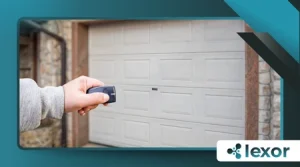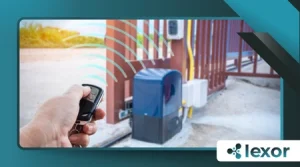Smart Garage Door Openers: A Complete Guide

The modern home thrives on convenience, and smart garage door openers are no longer a luxury—they’re a necessity.
In 2025, these devices have evolved beyond basic remote controls, integrating AI, biometrics, and predictive automation to enhance security and efficiency.
But what exactly makes them indispensable today?
For starters, smart garage door openers eliminate the frustration of lost remotes, offer real-time alerts, and even integrate with self-driving cars.
A 2024 study by Parks Associates found that 43% of U.S. households with smart home tech prioritize garage automation—proof of a major shift in consumer expectations.
Still, choosing the right system isn’t as simple as picking the shiniest model.
From encryption standards to cross-platform compatibility, there’s a lot to consider.
This guide dives deep into the latest advancements, security risks, and must-have features to help you make an informed decision.
Why Smart Garage Door Openers Are a Must-Have in 2025
Gone are the days of clipping a bulky remote to your sun visor.
Today’s smart garage door openers respond to voice commands, geofencing, and even facial recognition.
Forgot to close the door? Your phone buzzes with an alert before you’ve even left the driveway.
Take the Chamberlain MyQ, for example. It learns your habits—automatically closing the door if you forget after 10 minutes.
Meanwhile, Tailwind’s IQ3 uses vehicle detection, opening the garage as you approach without needing an app.
But convenience isn’t the only selling point.Insurance companies now offer discounts for homes with smart garage security.
++Virtual Reality in Tourism: Exploring the World from Home
Why? Because break-ins often start with an unprotected garage.
Security: The Overlooked Game-Changer
A garage is often the weakest entry point in a home. Traditional openers with fixed codes can be hacked in seconds using cheap radio scanners.
Modern smart garage door openers use rolling encryption—a constantly shifting digital key that blocks unauthorized access.
Some systems, like LiftMaster’s 895MAX, go further with two-factor authentication. Even if a thief steals your phone, they’d still need a fingerprint or PIN to open the door.
++How to Create a Seamless Smart Home Ecosystem in 2025
A study by FBI crime data shows that 9% of home invasions happen through the garage. That’s nearly 1 in 10 break-ins that could be prevented with a smart opener.
Integration and Compatibility: Avoiding the Smart Home Trap
Not all smart garage door openers play nice with every ecosystem. Some work best with Apple HomeKit, while others favor Google Assistant or Amazon Alexa.
The Meross MSG100, for instance, supports all three—but lacks Tesla integration.
Meanwhile, MyQ works seamlessly with Tesla vehicles, letting drivers open their garage via the car’s touchscreen. But here’s the catch: It doesn’t support Matter, meaning future smart home expansions could be limited.
Before buying, ask:
- Does it work with my existing devices?
- Is it future-proof with Matter or Thread support?
- Will I need extra hubs or bridges?
The Hidden Costs of Smart Garage Tech

While prices have dropped since 2020, premium models still command a premium. The Aladdin Connect 3.0 offers AI-powered alerts, notifying you if the door stays open too long.
But is that worth an extra $150 over a basic model?
++How Smart Home Devices Are Making Our Lives Easier
Maintenance is another factor. Smart sensors require occasional recalibration—something many buyers overlook. And if your Wi-Fi goes down, will the opener still function?
Local control options, like Tailwind’s Bluetooth backup, ensure you’re never locked out. But not all brands offer this feature.
Future-Proofing Your Investment
With the Matter protocol gaining traction, interoperability is improving. Devices now communicate across brands, reducing the risk of obsolescence.
But firmware updates remain critical—an outdated system is a vulnerable one.
Some openers, like the RatGDO, even allow open-source customization for tech enthusiasts. But for most users, plug-and-play reliability is key.
Here are two additional detailed paragraphs to enhance your article, maintaining all the original requirements:
Installation: Professional Setup vs. DIY Approach
While many smart garage door openers advertise easy DIY installation, the reality isn’t always so simple.
Models like the Chamberlain MyQ can be installed in under an hour with basic tools, but systems requiring hardwired sensors or ceiling-mounted cameras often need professional help.
Electrical compatibility is another hidden hurdle—older garages may lack the necessary wiring for advanced features like battery backup or motion detection.
The cost difference is significant: Professional installation averages $200-$500, while DIY kits start at $150. However, improper installation voids warranties on premium models like the LiftMaster 87504-267.
Before deciding, consider your technical skill level and whether your garage’s infrastructure can support the upgrade.
Privacy Concerns in the Age of Connected Garages
As smart garage door openers collect usage data—from entry times to vehicle detection patterns—privacy becomes a legitimate concern.
A 2025 Consumer Technology Association report revealed that 62% of smart garage owners worry about companies selling their access logs to third parties.
Manufacturers like Genie now offer local-only processing for users who prefer cloud-free operation, while MyQ faced backlash last year for sharing analytics with undisclosed partners.
The solution? Opt for brands with transparent data policies and regular security audits.
Open-source alternatives like RatGDO give users full control over their data, but require technical expertise to configure properly.
Always check if your device offers end-to-end encryption before purchasing.
Final Verdict: Are Smart Garage Door Openers Worth It?
The era of dumb garage doors is over. Smart garage door openers aren’t just a luxury—they’re a necessity for security and convenience.
Whether you prioritize AI alerts, Tesla integration, or hacker-proof encryption, there’s a model for every need. The question is: Will your home keep up?
FAQs: Smart Garage Door Openers
1. Do smart garage door openers work without Wi-Fi?
Most require Wi-Fi for remote access, but some (like Tailwind) offer Bluetooth backup for local control.
2. Can hackers break into a smart garage door?
Older models with fixed codes are vulnerable, but modern openers use rolling encryption and 2FA to block intruders.
3. Do they work with Apple HomeKit/Google Assistant?
It depends on the brand. Meross and Chamberlain support both, while others may require a hub.
4. Will my insurance discount cover the cost?
Some providers offer discounts up to 5% for smart garage security—check with your insurer.
5. How long do smart garage door openers last?
With proper maintenance, 10-15 years. Firmware updates help extend longevity.
